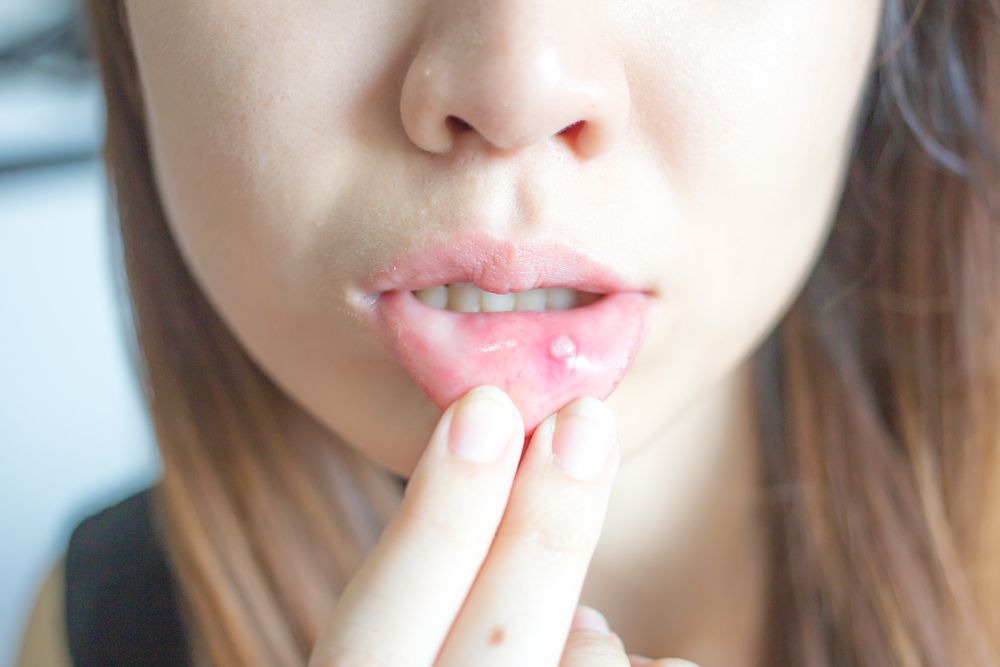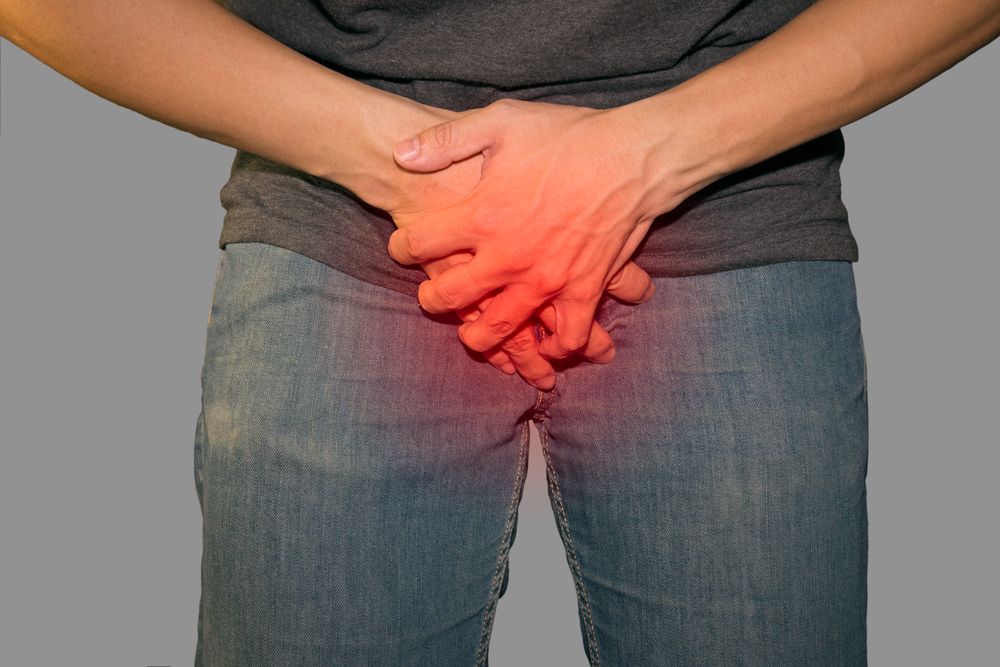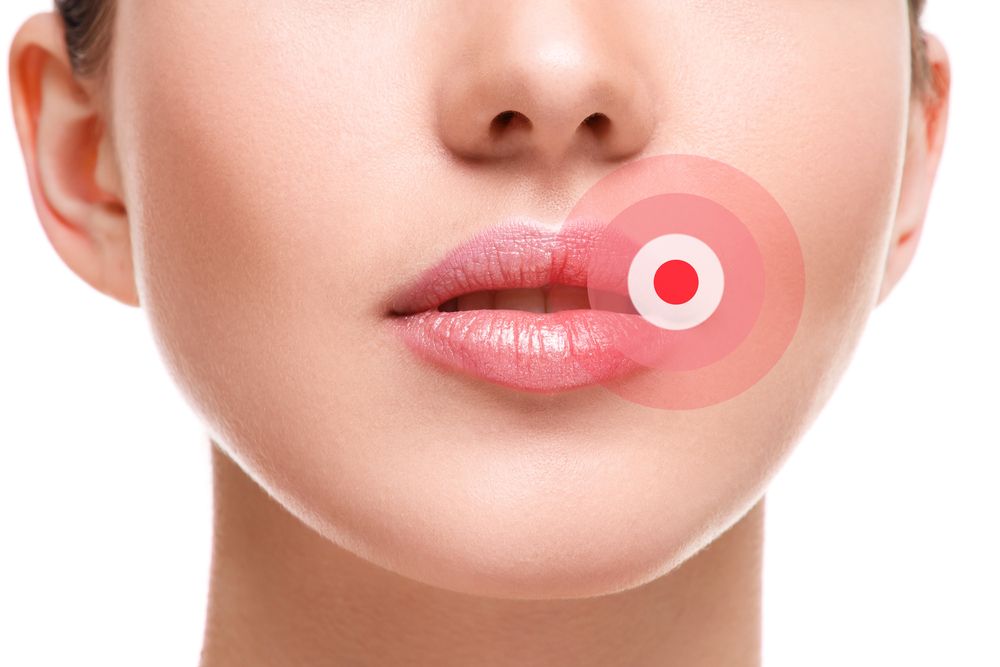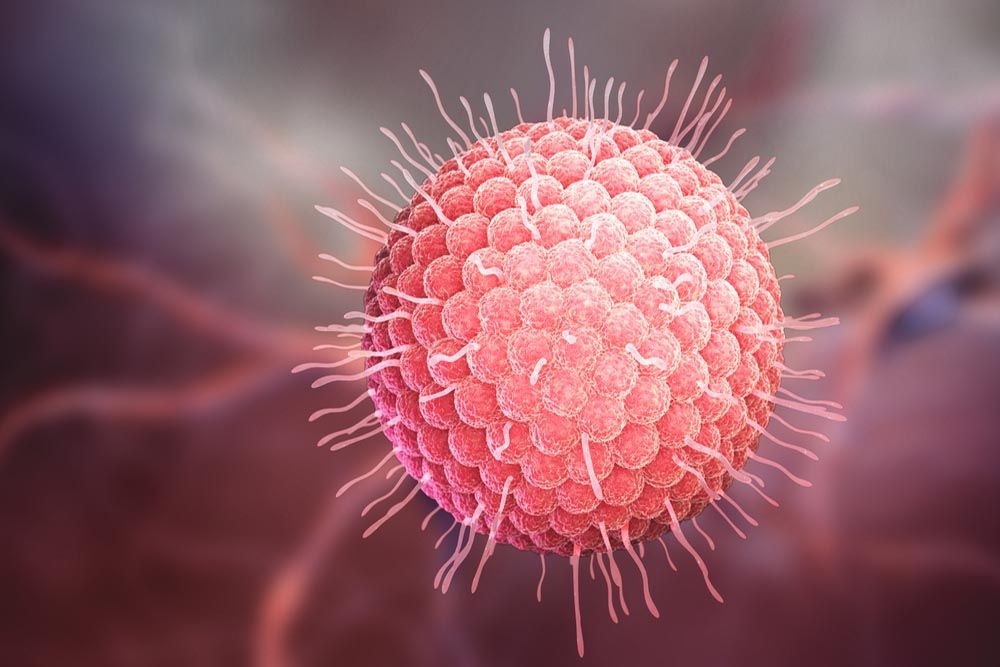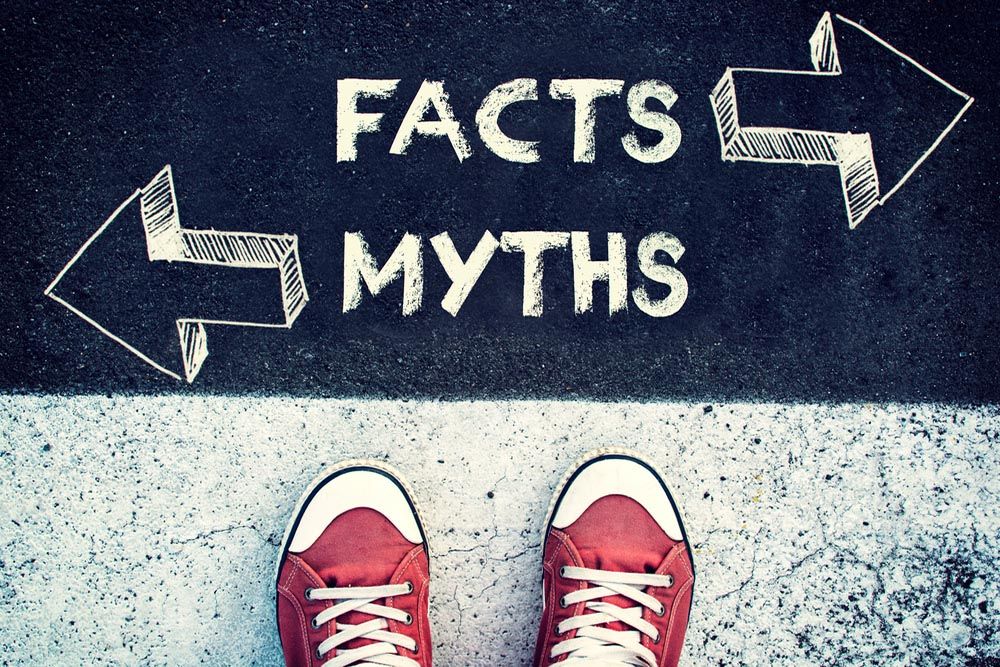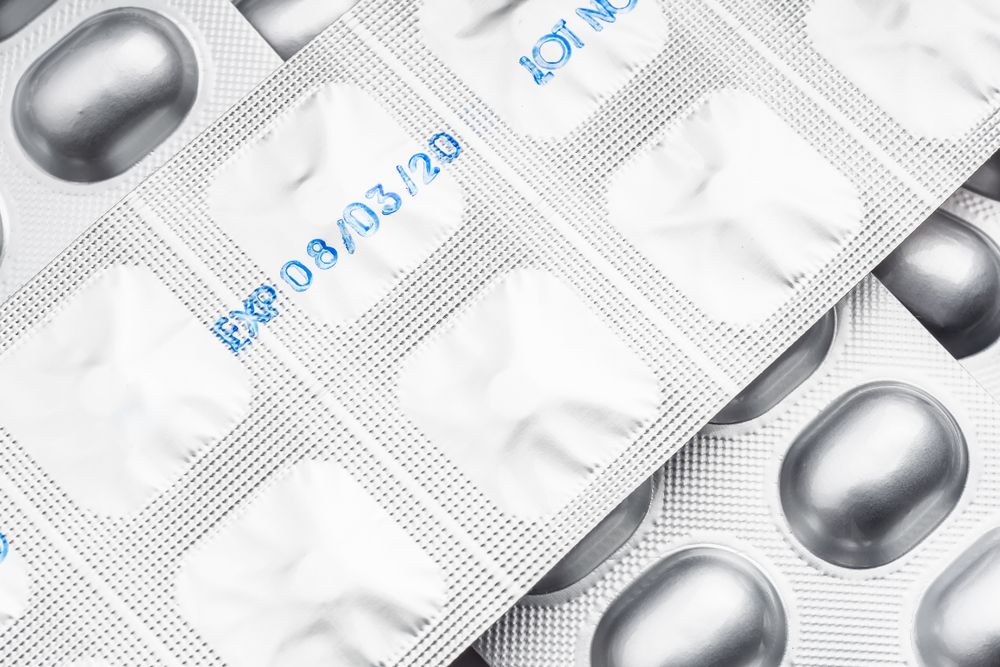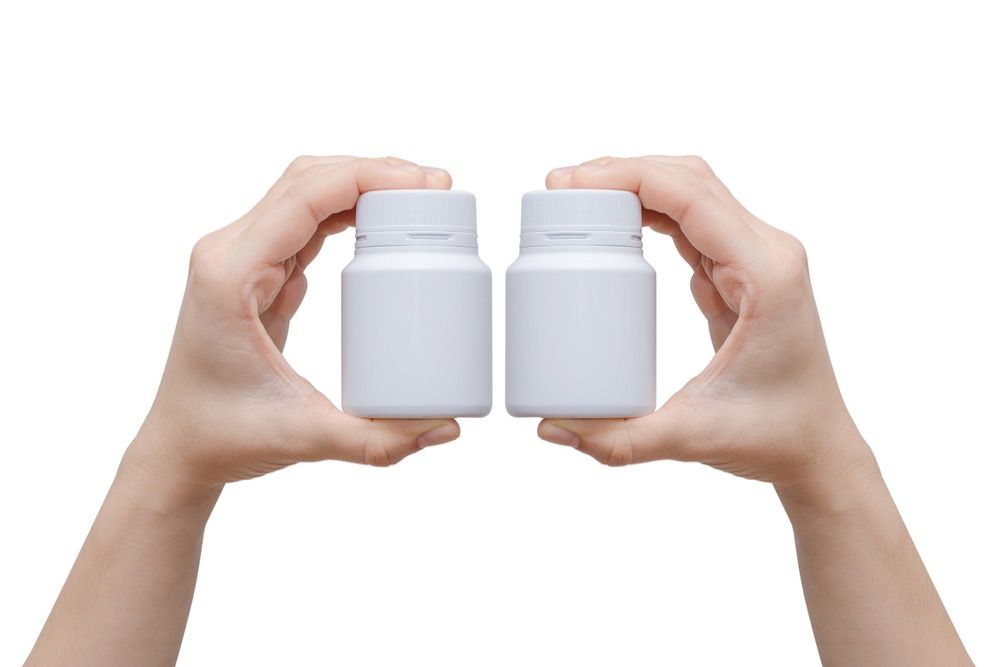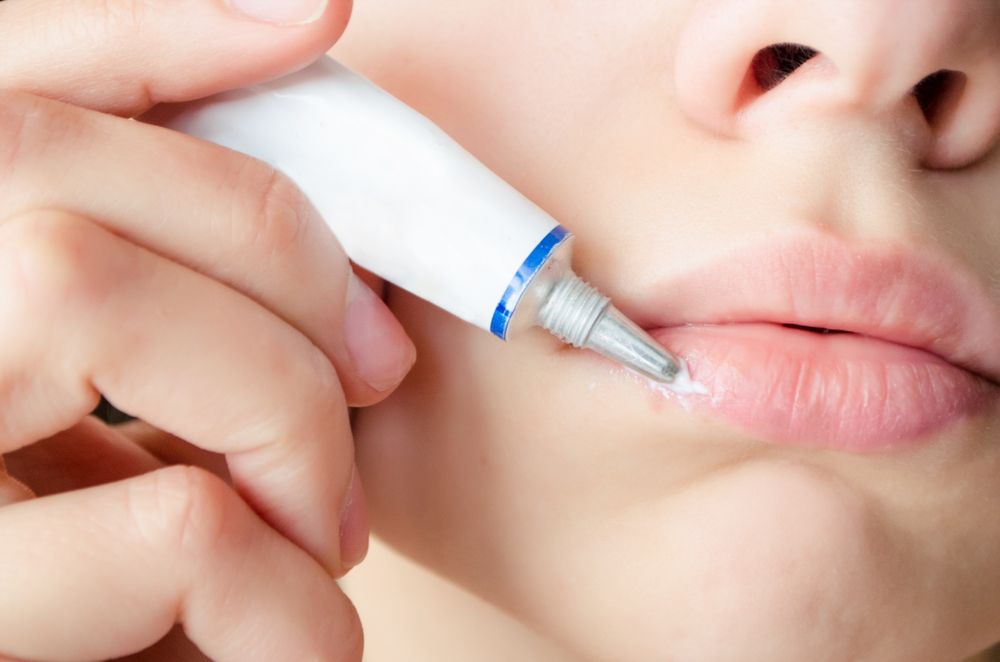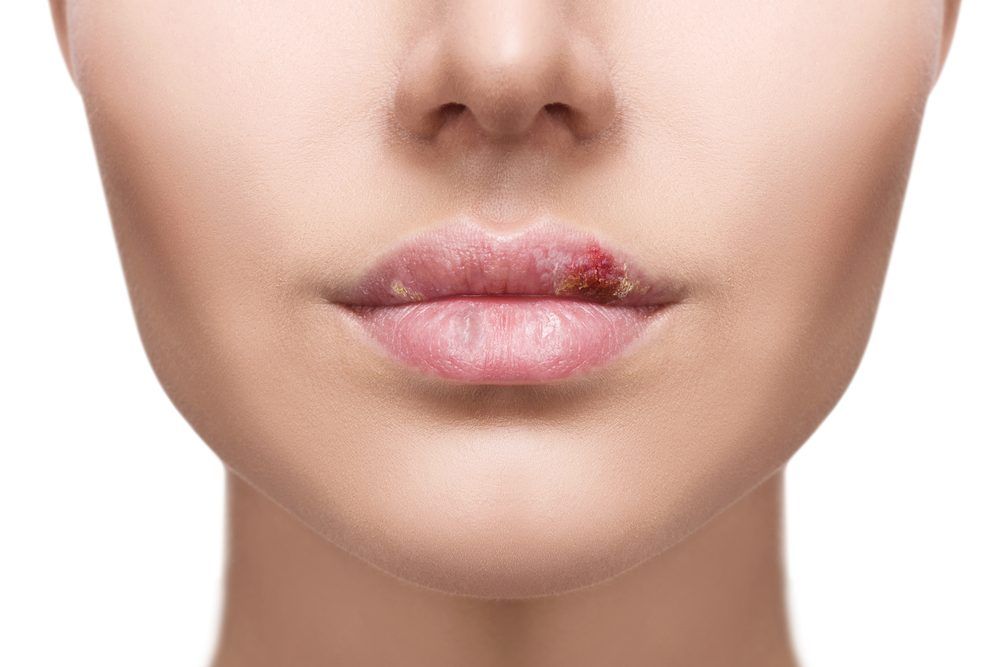Many people confuse cold sores with canker sores, (Learn More) but there are differences between the two. (Learn More) Cold sores are caused by the herpes virus, whereas canker sores can have several different causes. (Learn More)
If you have canker sores, you should not be overly concerned (Learn More) There are several different ways to treat them. (Learn More) You can also take measures to prevent canker sores. (Learn More)
The bottom line is that canker sores and cold sores are not the same thing. (Learn More)
Oral Herpes Compared to Canker Sores
Cold sores or oral herpes and canker sores are very common conditions that are often mistaken as the same thing. These conditions have different causes, symptoms, and appearances.
These different mouth sores often appear on or in the mouth. They have very different appearances once you inspect the sores more closely.
- Canker sores, also referred to as aphthous ulcers, are ulcers that develop in the mouth, most often on the soft tissues at the sides of the teeth or on the roof of the mouth. These sores are often white and round with red borders.
- Oral herpes, sometimes referred to as cold sores or fever blisters, are often found on or around the lips. They are caused by the herpes virus. These often have the appearance of small blisters.
Major Differences Between Canker Sores and Cold Sores
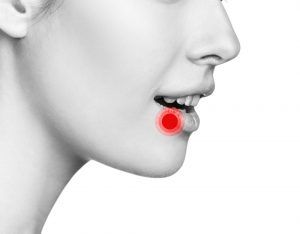
- Canker sores are found inside your mouth. Oral herpes is found around your lips.
- Canker sores are not contagious. Oral herpes is extremely contagious.
- Canker sores can be caused by many different factors. Oral herpes is caused by the herpes virus.
- Canker sores are white flat sores. Oral herpes appears as liquid-filled blister-like sores that may rupture and then appear as scabs.
What Causes Cold Sores (Oral Herpes)?
There are two major strains of the herpes virus. HSV-1 most often produces sores on the mouth, and HSV2 most often produces sores on the genitals.
HSV-1 is the cause of cold sores, whereas HSV-2 causes genital herpes. Both are highly contagious.
Infections with the HSV-1 virus are very common worldwide. Mayo Clinic reports that nearly 90 percent of people worldwide will test positive for the HSV1 virus.
Both viruses are highly contagious, even if the sores are not visibly present on the body.
An outbreak of cold sores on your mouth can be triggered by stress, climate, certain foods, and/or hormonal changes, but the cold sores themselves are caused by contracting the HSV-1 virus.
What Causes Canker Sores?
Canker sores can result from several potential triggers or conditions.
- A bacterial infection
- A weakness in your immune system
- Having dental work done
- Eating certain types of food
- Stress
- Alterations in levels of hormones in your system
Certain types of conditions, such as Crohn’s disease (a disease that causes inflammation of the digestive tract), HIV, or celiac disease (a reaction of the immune system to eating foods that contain gluten), may be associated with a higher risk of developing canker sores.
Canker sores appear to occur more often in women than men. There may be a genetic component to vulnerability to them as they appear to run in families.
If I Have Canker Sores, Should I Be Concerned?
Canker sores can be painful, but they are not typically something to be overly concerned about.
Smaller canker sores usually heal within one week. Larger clusters of canker sores may take a little longer to heal.
Treatment for Canker Sores
There are no treatments that will get rid of canker sores. However, there are some things you can do to relieve the symptoms or discomfort associated with them and to speed the healing process.
Over-the-counter medications that include hydrogen peroxide or benzocaine can be used to rinse your mouth and accelerate healing.
Mayo Clinic suggests several treatments you can try at home that may relieve discomfort from canker sores and encourage healing.
- Gargle and rinse your mouth with apple cider vinegar.
- Rinse your mouth with a mixture of baking soda and water.
- Gargle and rinse with saltwater.
- Put coconut oil or honey on the sores.
In very extreme cases where canker sores will not go away after several weeks, your physician may prescribe you an antibiotic or even a corticosteroid lotion to apply to the sores
Preventing Canker Sores
Practicing good oral hygiene can go a long way in preventing an outbreak of canker sores in your mouth. Also, eat a balanced diet, practice stress management techniques, and learn what triggers an outbreak of canker sores.
If you suffer from frequent canker sores, talk to your physician to better learn how you may be able to prevent them.
The Take-Home Message
The bottom line is that canker sores are not cold sores (oral herpes).
Cold sores are caused by the herpes virus, whereas canker sores can result from many different conditions or factors, but they are not a direct manifestation of a viral infection.
Both can be painful and uncomfortable.
If you suffer from frequent cold sores or canker sores, speak to your physician about your treatment options.
References
Canker Sores. (April 2018). Mayo Clinic.
Herpes-Oral. (August 2017). U.S. National Library of Medicine.
Cold Sore. (December 2018). Mayo Clinic.
Canker Sores. (March 2015). Cleveland Clinic.
What Is Crohn’s Disease? (January 2019). Medical News Daily.
What Is Celiac Disease? Celiac Disease Foundation.

